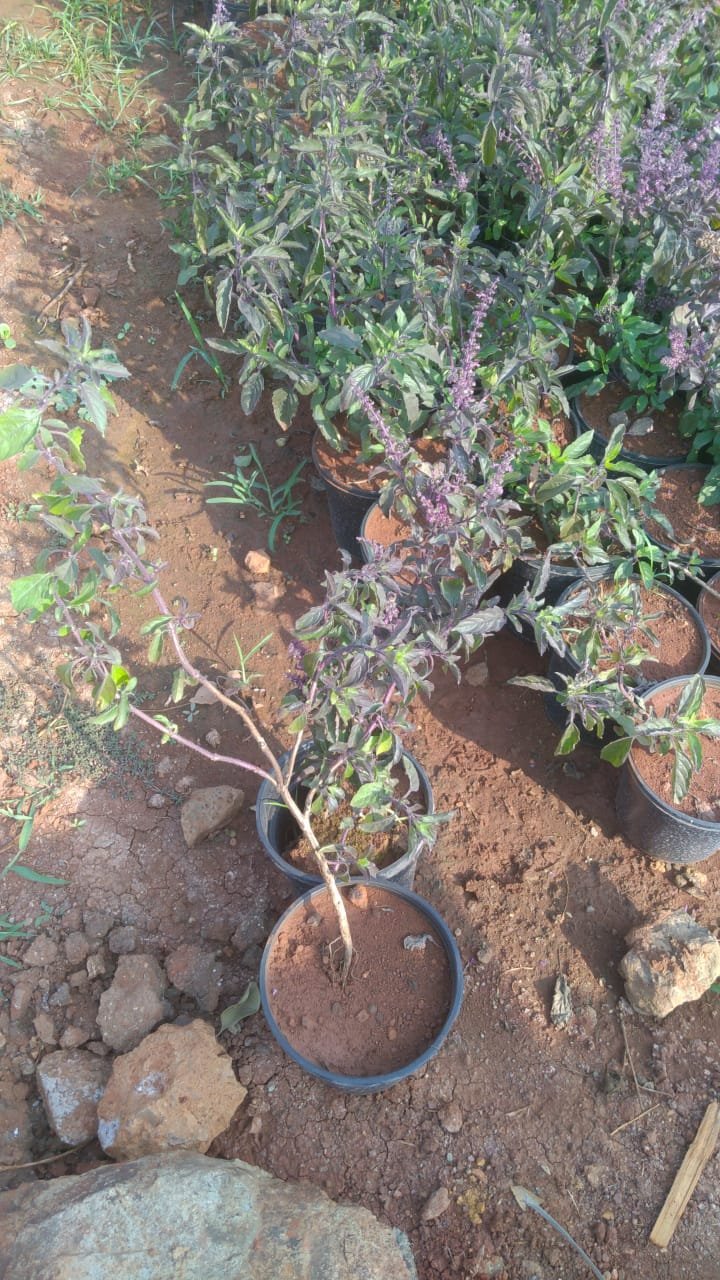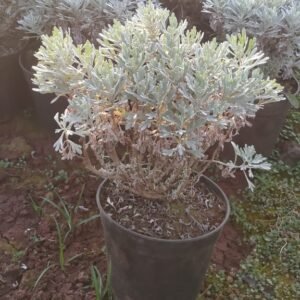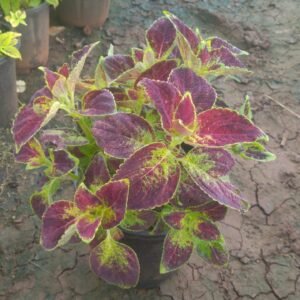Tulsi, also known as Holy Basil (Ocimum sanctum), is a revered herb in many cultures, particularly in India, where it holds significant spiritual and medicinal importance. Often referred to as the “queen of herbs,” Tulsi is celebrated not only for its aromatic leaves but also for its numerous health benefits and cultural significance. Imagine a garden filled with vibrant green leaves emitting a sweet, spicy aroma that uplifts the spirit and invigorates the senses—this is the essence of Tulsi.
Appearance
Tulsi plants typically grow to a height of about 2 to 3 feet, featuring delicate, serrated leaves that can range in color from bright green to deep purple, depending on the variety. The plant produces small, white to purple flowers that bloom in clusters, attracting pollinators such as bees and butterflies. The leaves are the most prized part of the plant, known for their unique flavor and fragrance, which can elevate both culinary dishes and herbal remedies.
Cultural Significance
In Hindu culture, Tulsi is considered sacred and is often grown in home gardens and temples. It is believed to embody the divine and is associated with the goddess Lakshmi. Many families maintain a small Tulsi plant, often referred to as the “Tulsi Vivah,” which involves ceremonial worship and rituals, especially during the festival season. The plant is seen as a protector of the home, and its presence is thought to bring peace, prosperity, and positive energy.
Health Benefits
Beyond its cultural significance, Tulsi is renowned for its numerous health benefits. It is classified as an adaptogen, a natural substance that helps the body adapt to stress and promotes mental balance. Some of the key health benefits of Tulsi include:
- Immune Support: Tulsi is rich in antioxidants, which help strengthen the immune system and protect the body from various ailments. Its anti-inflammatory properties can also aid in reducing inflammation and fighting infections.
- Respiratory Health: Traditionally, Tulsi has been used to relieve respiratory issues. It can help soothe coughs, colds, and asthma by opening up the airways and improving overall lung function.
- Digestive Aid: Tulsi leaves are known to promote healthy digestion and alleviate digestive disorders. They can help reduce bloating and discomfort while also improving appetite.
- Stress Relief: The aromatic compounds in Tulsi can have calming effects on the mind and body. Drinking Tulsi tea or inhaling its fragrance can help reduce anxiety and stress levels, promoting relaxation.
- Skin Health: Tulsi has antibacterial and antifungal properties that make it effective in treating skin conditions such as acne and eczema. Applying a paste made from Tulsi leaves can help soothe irritations and promote healthy skin.
Culinary Uses
In addition to its medicinal properties, Tulsi is also a popular culinary herb. Its unique flavor makes it a delightful addition to various dishes, particularly in Indian cuisine. The leaves can be used fresh or dried in salads, soups, curries, and teas. Tulsi tea, made by steeping the leaves in hot water, is a refreshing and aromatic beverage that offers a range of health benefits.
Growing Tulsi
Growing Tulsi is relatively easy, making it a popular choice for home gardens. It thrives in warm, sunny environments and prefers well-draining soil. Whether planted in pots or directly in the garden, Tulsi requires regular watering to keep the soil moist, but be careful not to overwater, as this can lead to root rot. Pinching back the tips of the plant encourages bushier growth and helps prevent it from becoming leggy.






Reviews
There are no reviews yet.